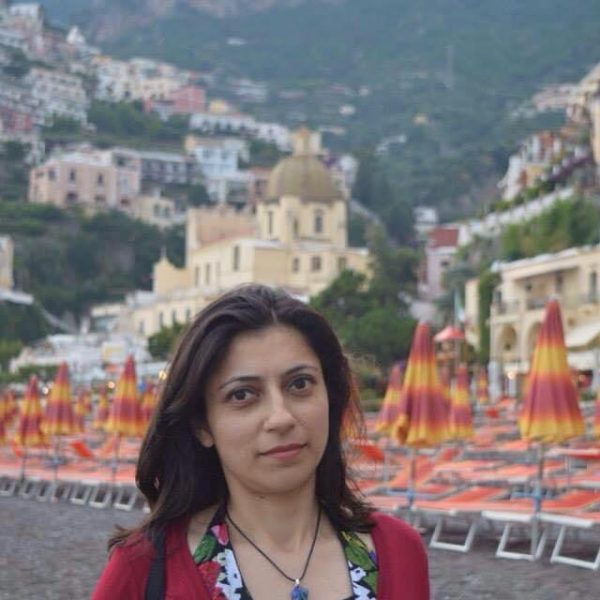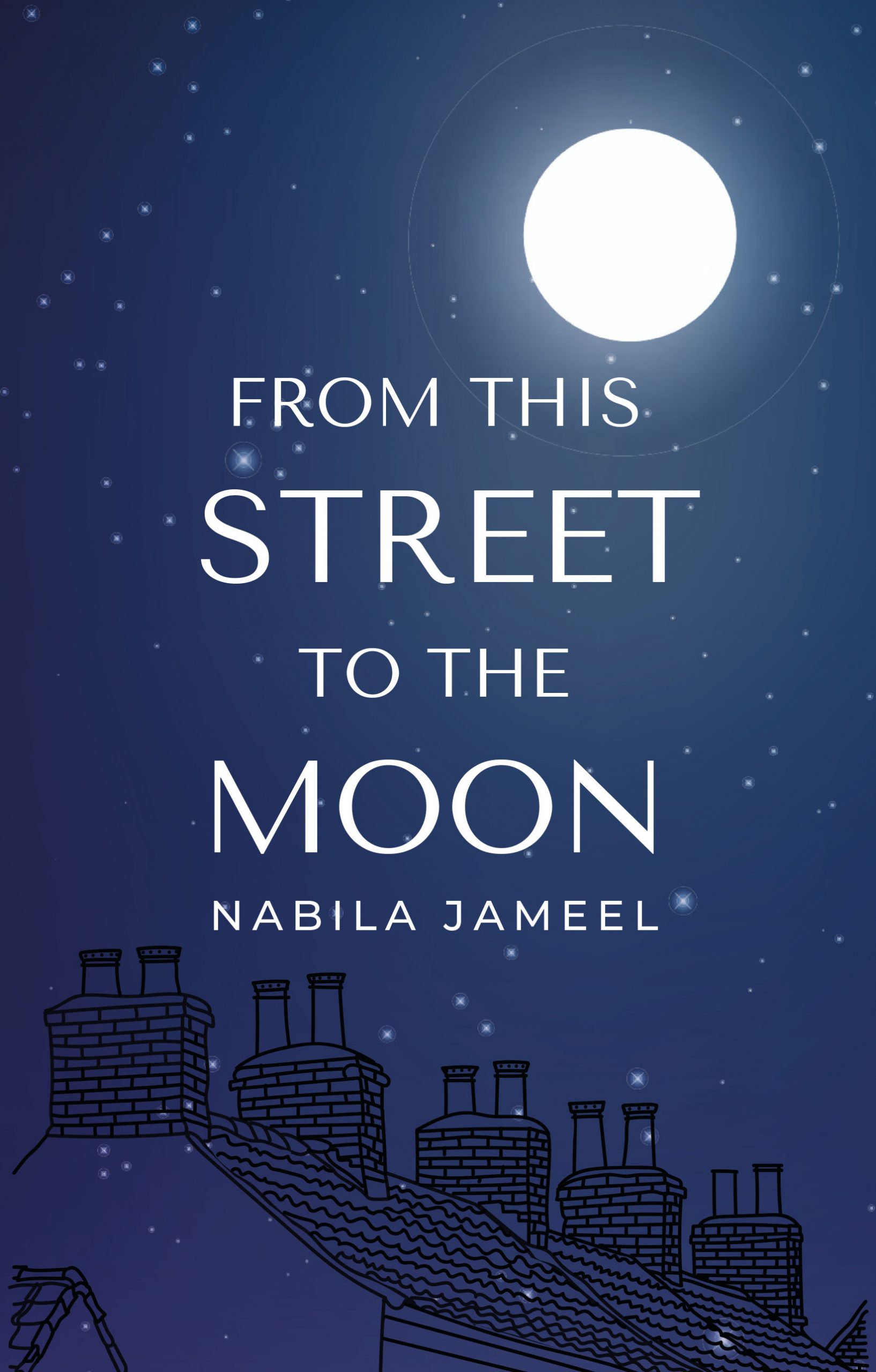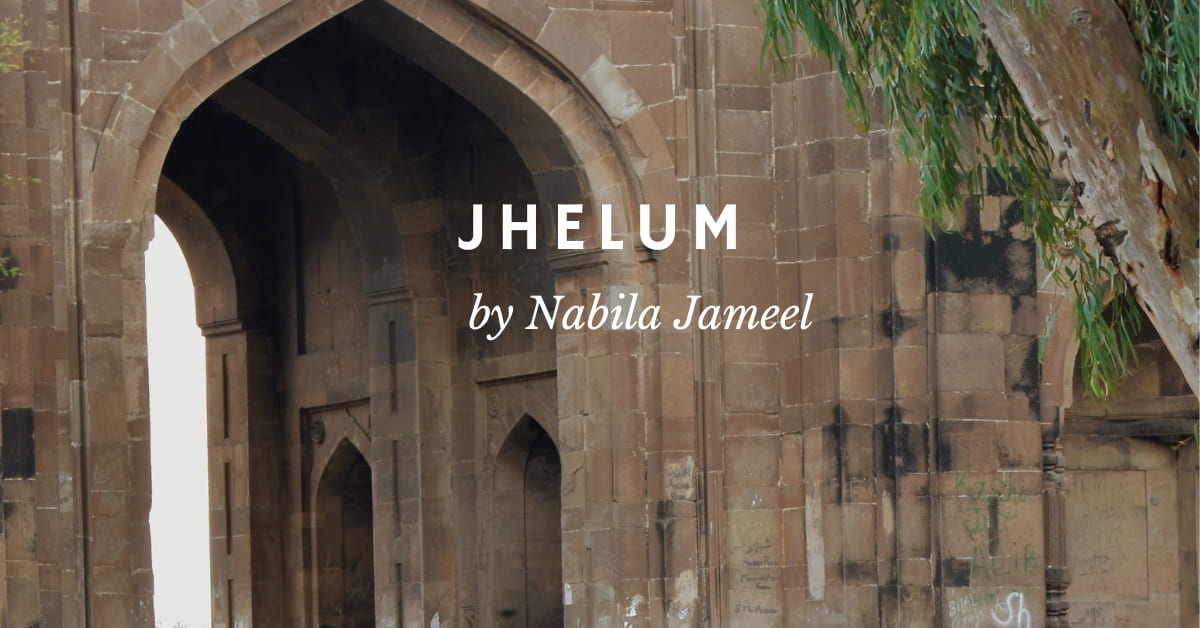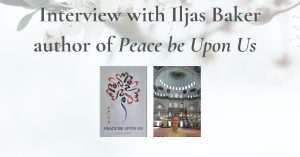I
Legend has it that Alexander the Great’s
horse Jhelum died here and so the city
was named after it.
It is believed that Jhelum signifies
the ‘hoof mark’ in Greek and that the horse
left a mark on the soft ground on this spot.
Legend also delivers the myth that
Jhelum is a compound of two Greek words:
‘Jul’ and ‘Hum’ (‘cool’ ‘water’).
II
Jhelum also means I’m wild and free, filled with love
to the brim, about to burst; aunties and cousins,
winter sun and hazy dusk; playing chase around a well,
splashing in the courtyard, drenched by the cooling rain;
everyone laughing at me for the way I talk and act
but loving me all the same.
It means sweet juicy mangoes squishing in our hands,
biting into chunks of chilling sugar cane; excitedly running
up to the roof, then leaning over to watch processions of goats;
watching a healthy goat being slaughtered, its blood gushing
into the drain; long goodbyes and sobbing until
I’m back on the plane.
III
Jhelum also means the crumbling of an empire
and the slow struggles of a civilisation,
the haunting shadows of colonial buildings,
ghostly, grey, grim;
independence, with dependence,
poverty and posh kothees,
starving faces, begging amputees;
love stories, long distance calls,
the inky stamp on the letter addressed
to a terraced house in a small English town,
excitedly opened by a millworker’s hands.
IV
Welcoming coffins to the homeland.
It’s where it begins and ends, at the hoof-mark
of Alexander the Great’s horse.
kothee(s): villa(s)

About the Poet
Nabila is an English teacher, with an MA in Creative Writing from Manchester (tutored by Carol Ann Duffy and Simon Armitage). She is currently writing her second collection on issues affecting women and also working on art projects, mainly pen and ink sketches. Her poetry has been published in journals and anthologies as well as articles. You can follow her on Instagram and read her blogs on her website: @njpoetessa / www.nabilajameel.com

This poem appears in From this Street to the Moon by Nabila Jameel
Exploring the dynamics of growing up in a working class family in a northern town, Nabila Jameel takes us on a journey through life in England, coloured with visits to Pakistan. From this Street to the Moon is a feast for the senses, filled with sumptuous details and mesmerising descriptions of everyday activities, evoking both raw and tender moments, from hastily devouring mangoes in the summer heat of Pakistan -
Chilled mangoes were meals in the sticky heat
of monsoon summers: we giggled as the juice trickled
through our fingers down to our feet.
to a day out in Blackpool -
Our parents took us every summer.
Five of us packed in the back
of the Cortina, without seatbelts.
Dad: wearing a well pressed shirt,
mum: bride-like, adorned with gold.
In her verses the reader can almost smell the roti as it is freshly made over an open fire, or feel they are standing on the roadside as ‘A Vespa stutters past/ and then a rikshaw, heavy with loud women.’ From a child’s eyes we are able to feel the joy and freedom of bathing in the back yard - ‘We sat towel wrapped in the sun and shivered/ while droplets fell onto our flip flops./ Smiles were bigger than our house’, and sense the fatigue of her hard-working parents when her father ‘comes home tired/ hands the crispy wage packet to mum/ eats in haste and falls asleep as if he’s drugged.’
In her unflinching social commentary Jameel explores the harsh realities of society: poverty, abuse and misogyny. Racism and identity are explored through the discomfort of being a foreigner in an ancestral homeland while facing both overt and subtle racial abuse in the UK.
There’s a pile of BNP leaflets in my porch -
they’ve been dropping through my letterbox all week.
Whether describing the process of starching a shalwar kameez, buying tins of baked beans in a bazaar in Hayatabad, or highlighting uncomfortable social and cultural undercurrents, Jameel’s words are vivid and evocative, taking us on a journey with her as we travel through prominent milestones in life, experiencing the highs and lows, while navigating between two cultures. Grief and loss are intertwined with and explored through culture and spirituality -
You’re in the sun lowering itself to sleep.
You’re in your teacup I'm drinking from.
You’re even in the kitchen:
hospital appointments marked
on the calendar, now obsolete.




